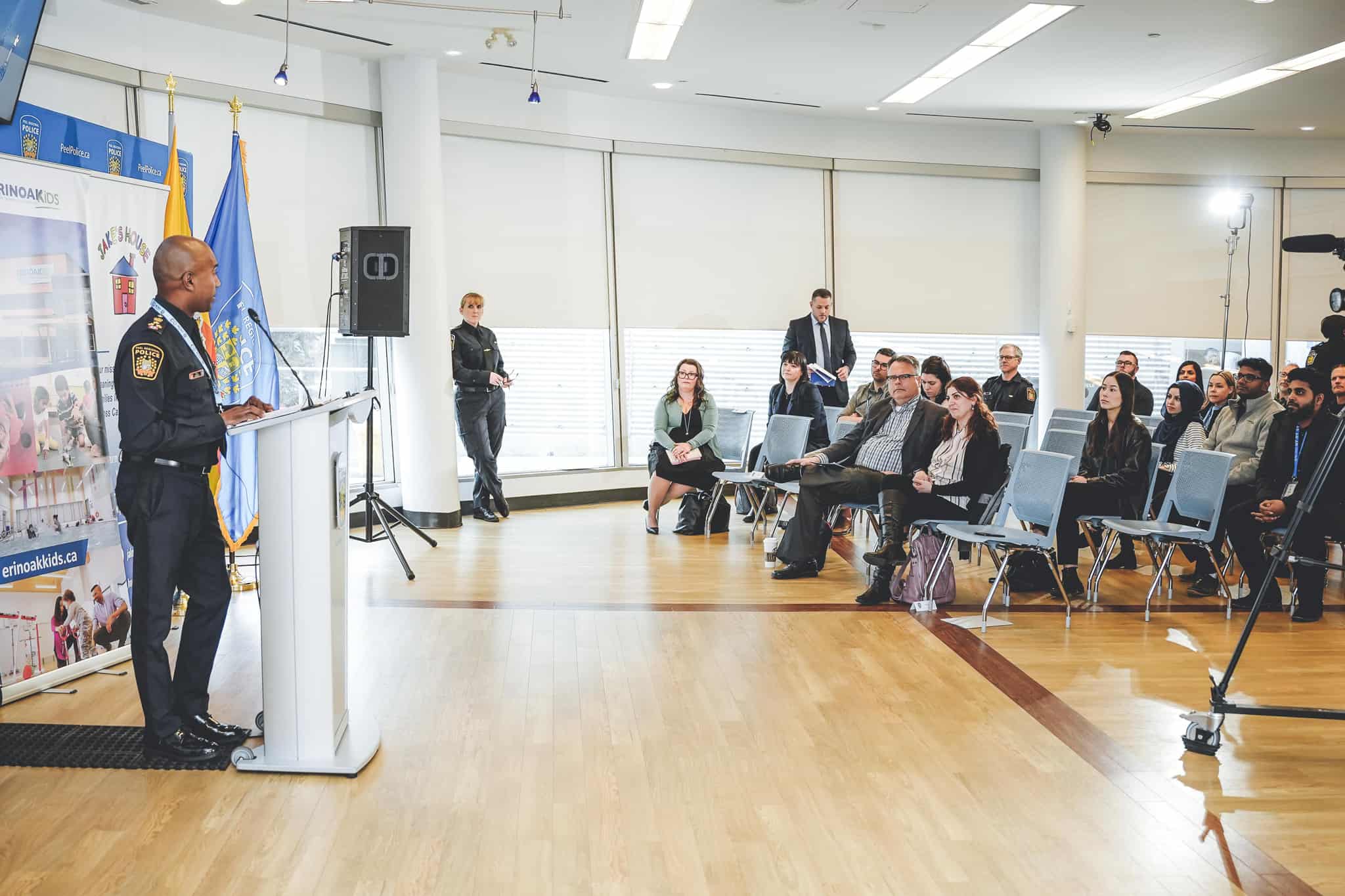Police launch autism strategy following Tasering of Mississauga teen
Published May 2, 2023 at 12:09 pm

Months after the brutal Tasering of a Mississauga teen with autism, Peel Regional Police have announced a new strategy to serve the autistic community.
Nonverbal, autistic teen Abdullah Darwich was Tasered not far from his home in Mississauga on Nov. 4. Police said they were responding to a report of a suspicious person and although Abdullah was listed on the vulnerable person registry, several officers subdued and Tasered him.
Abdullah was sent to hospital with injuries all over his body. He was left with a distrust and fear of people following the police encounter.
His father, Majd Darwich, spoke out against the attack and consulted a lawyer, considering legal action. But he decided to take part in meetings with police and several organizations on the new autism strategy, he tells insauga.com.
“I wanted to be sure that they will enhance their policy so our children will live safe in this community,” Darwich said.
Peel Regional Police announced the launch of the new autism strategy, believed to be the first of its kind in Canada, today (May 2).
It was developed through a “highly collaborative approach,” Peel Regional Police said in a press release.

Majd Darwich (second from left), father of a Mississauga teen Tasered by police, participated in the development of a new autism strategy with Peel Regional Police.
Police met with Autism Ontario, Community Living Mississauga, Developmental Services Ontario, the Dufferin-Peel Catholic District School Board, ErinOakKids, Jake’s House, Kerry’s Place, the Ministry of Children, Community and Social Services, Peel Behavioural Services, Peel Crisis Capacity Network, the Peel District School Board and the South Asian Autism Awareness Centre.
“As with all priority populations, police agencies need to do more to understand, engage and serve the autistic community,” said Peel Regional Police Chief Nishan Duraiappah.
“We are grateful to the many partners working alongside us to define and inform this important work. I encourage jurisdictions across Canada to leverage what we’ve done in Peel as a springboard for efforts to strengthen service to the autistic community.”

The strategy builds on the Community Safety and Well-Being plan that Peel Regional Police adopted in June, 2022, to support a more collaborative and innovative approach to how the organization responds to current and emerging community needs.
Specifically, it outlines four pillars with a focus on enhanced training and education, ongoing engagement with the autistic community, collaboration with service providers and opportunities to improve how officers access information when responding to vulnerable persons.
The strategy is not a final destination point, police note.
It is a living document that will evolve through engagement with the autistic community, learnings from implementation and continued partner feedback.
Darwich said he is satisfied with the strategy in theory.
“But I hope they will apply it correctly,” he said.
He insisted on making training for all police officers mandatory and he wanted to enhance the police system so officers can easily find people on the vulnerable registry in the area of a 911 call.
Jennifer Joseph, chief executive officer of Jake’s House, an autism charitable organization in Mississauga, commended the efforts of Peel Regional Police.
“Critical to those within the autism community, is that they know they are being heard,” Joseph said. “As importantly, constant education is required to ensure that their special needs are understood by those who serve and protect them.”
The strategy could be applied to other police forces, said Michael Cnudde of Autism Ontario.
“We believe that by working together, police and the autism community can reduce the level of negative police interactions experienced by autistic people,” said Cnudde. “We also believe this model can be used by other police services across the country, as police interactions with autistic people are not just restricted to Peel.”
INsauga's Editorial Standards and Policies

